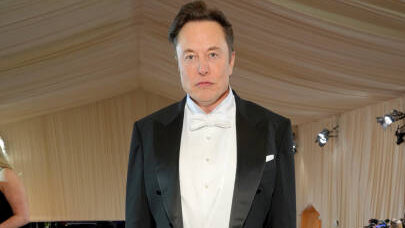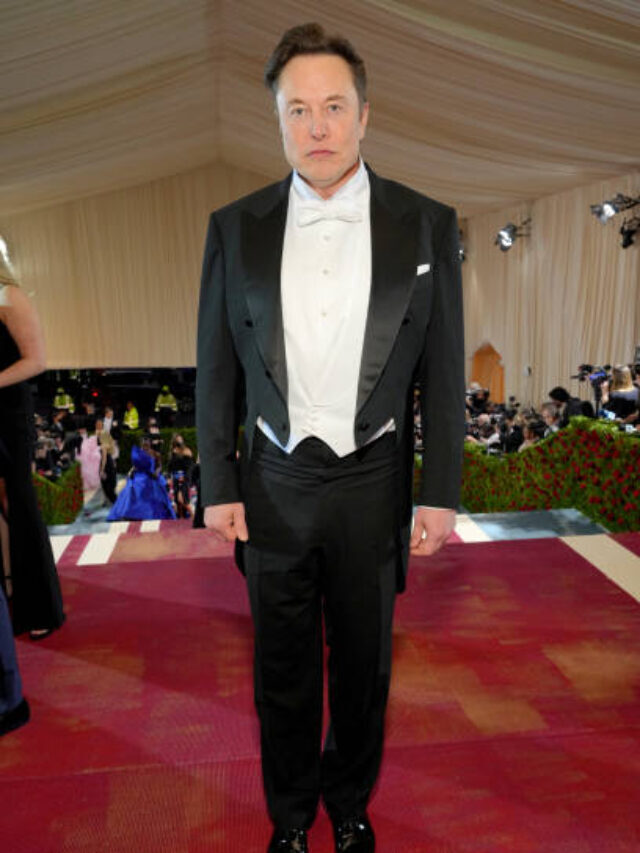Elon Musk shows off updates to his brain chips and says he’s going to install one himself when they are ready
Elon Musk’s health tech venture Neuralink shared updates to its brain-implant technology during a “show and tell” recruitment event Wednesday night. Musk said during the event that he plans to get one of the implants himself.

Musk said two of the company’s applications will aim to restore vision, even for people who were born blind, and a third application will focus on the motor cortex, restoring “full body functionality” for people with severed spinal cords. “We’re confident there are no physical limitations to restoring full body functionality,” Musk said.
Neuralink could begin to test the motor cortex technology in humans in as soon as six months, Musk said.
“Obviously, we want to be extremely careful and certain that it will work well before putting a device in a human, but we’re submitted, I think, most of our paperwork to the FDA,” he said.
Musk also said he plans to get one himself. “You could have a Neuralink device implanted right now and you wouldn’t even know. I mean, hypothetically … In fact, in one of these demos, I will,” he said. He reiterated that on Twitter after the event.
Since none of Neuralink’s devices has been tested on humans or approved by the FDA, Wednesday’s announcements warrant scepticism, said Xing Chen, assistant professor in the Department of Ophthalmology at the University of Pittsburgh School of Medicine.
“Neuralink is a company [that] doesn’t have to answer to shareholders,” she told CNBC. “I don’t know how much oversight is involved, but I think it’s very important for the public to always keep in mind that before anything has been approved by the FDA or any governmental regulatory body, all claims need to be very, very sceptically examined.”
Neuralink was founded in 2016 by Musk and a group of other scientists and engineers. It strives to develop brain-computer interfaces, or BCIs, that connect the human brain to computers that can decipher neural signals.
Musk invested tens of millions of his personal wealth into the company and has said, without evidence, that Neuralink’s devices could enable “superhuman cognition,” enable paralyzed people to operate smartphones or robotic limbs with their minds someday, and “solve” autism and schizophrenia.
The company’s presentation Wednesday echoed these lofty ambitions, as Musk claimed that “as miraculous as it may sound, we’re confident that it is possible to restore full body functionality to someone who has a severed spinal cord.”
Musk showed footage of a monkey with a computer chip in its skull playing “telepathic video games,” which Neuralink first debuted over a year ago. The billionaire, who is also the CEO of Tesla and SpaceX and the new owner of Twitter, said at the time that he wants to implant Neuralink chips into quadriplegics who have brain or spinal injuries so that they can “control a computer mouse, or their phone, or really any device just by thinking.”
Neuralink has come under fire for its alleged treatment of monkeys, and the Physician’s Committee for Responsible Medicine on Wednesday called on Musk to release details about experiments on monkeys that had resulted in internal bleeding, paralysis, chronic infections, seizures, declining psychological health and death.
Neuralink’s flashy presentations are unusual for companies in the medical devices space, said Anna Wexler, an assistant professor of medical ethics and health policy at the Perelman School of Medicine at the University of Pennsylvania. She said it’s risky to encourage people who have serious disabilities to get their hopes up, especially if they could possibly incur injuries as the technology is implanted during surgery.
Wexler encouraged people to put on their “skeptic hat” about Neuralink’s big claims.
“From an ethical perspective, I think that hype is very concerning,” she said. “Space or Twitter, that’s one thing, but when you come into the medical context, the stakes are higher.”
Chen, who specializes in BCIs, said Neuralink’s implants would require subjects to undergo a very invasive procedure. Doctors would need to create a hole in the skull in order to insert the device into the brain tissue.
Even so, she thinks some people would be willing to take the risk.
“There’s quite a few disorders, such as epilepsy, Parkinson’s and obsessive-compulsive disorder, in which people have received brain implants and the disorders have been treated quite successfully, allowing them to have an improved quality of life,” Chen said. “So I do feel that there is a precedent for doing this.”
Wexler said she believes the decision would ultimately come down to an individual patient’s personal risk-benefit calculation.
Neuralink is not the only company trying to innovate using BCIs, and many have made big strides in recent years. Blackrock Neurotech is on track to bring a BCI system to market next year, which would make it the first commercially available BCI in history. Synchron received FDA approval in 2021 to begin a clinical trial for a permanently implanted BCI, and Paradromics is reportedly gearing up to begin in-human testing in 2023.
Horror stories behind Elon musk’s Brain chip experiment
Tech billionaire Elon Musk again promises the unthinkable. He claims that his brain chip company Neuralink will soon present a device that will let the blind see and paralyzed person walk. And in the next six months, the device will be ready to be implanted in the human brain.
While it does sound miraculous, several experts have pointed out that Neuralink’s experiment has certain threats linked to it and they advise such experiments should be done with noninvasive methods. Earlier, these chips experimented on monkeys and there are hundreds of pages of public records that show how the animal suffered from them.

What are the controversies around Neuralink?
Physicians Committee for ResponsibleMedicine cited, the experiments resulted in chronic infections, seizures, paralysis, internal bleeding, and declining psychological health before they were killed.
The researchers also went on to publish the case studies of 8 monkeys of how they suffered from the sloppy experiments.
For example, “Animal 11,” a 10-year-old female macaque, went through a six-hour surgery in which they drilled holes in her skull and implanted electrodes in her brain.
Handwritten records reveal that the implants became infected almost immediately, the “skin was eroded,” and she was “scratching at left implant.” Soon, the skin on her head was “pierced” by the metal implant and there was “dark dried blood” around it.
Later, they killed her following another invasive surgery.
In another incident, in one monkey, the adhesive caused bleeding in her brain, and she vomited so much from the resulting side effects that she developed open sores in her oesophagus.
“He’s (Elon Musk) a showman who makes big promises while hiding the grisly details from the public. We’re pulling back the curtain on him,” said Ryan Merkley, director of research advocacy with the Physicians Committee.
Is it safe for humans to use Neuralink’s brain chip?
Elon Musk asserted that his company has to be extremely careful before putting a device in a human brain. “We’ve been working hard to be ready for our first human [implant], and obviously we want to be extremely careful and certain that it will work well before putting a device in a human,” Elon Musk said.
Currently, Neuralink has submitted all paperwork to the US Food and Drug Administration (FDA) and is waiting for its approval to begin clinical trials in people.
Meanwhile, The Physicians Committee points out that advances in brain-machine interfaces can be made using human-relevant methods, including noninvasive methods and data collected from patients during medically necessary neurosurgery.



[…] Elon Musk shows off updates to his brain chips and says he’s going to install one himself when th… […]